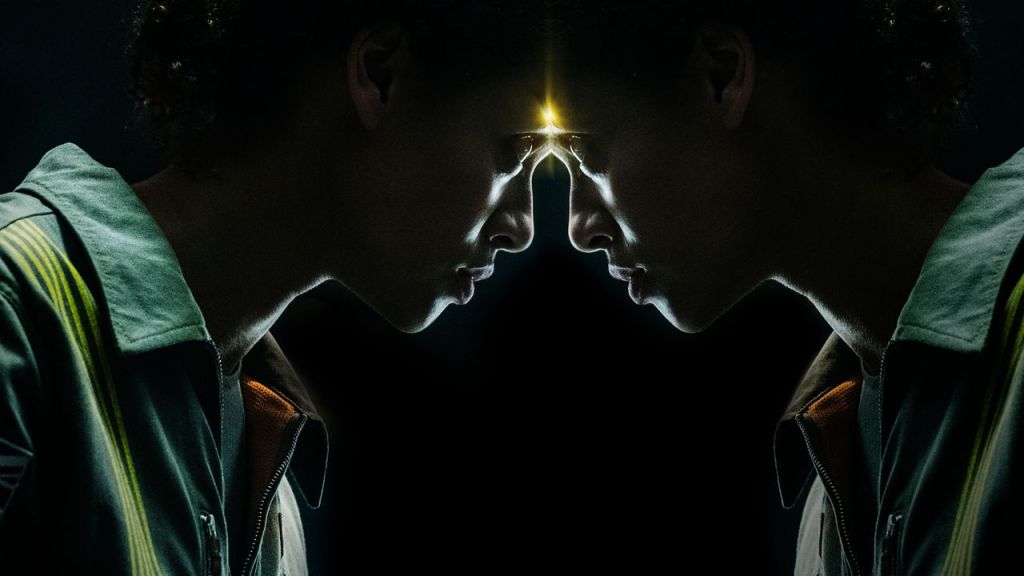Spoilers for The Cloverfield Paradox ahead.
I really, really wanted to love The Cloverfield Paradox, the surprise-announced Netflix film that went live just after the superbowl this Sunday evening. It’s the latest entry in the ongoing Cloverfield series, a kind of filmic anthology of sci-fi horror, and this particular installment belongs to my favorite horror premise: Things Go Badly on a Spaceship. I never saw the first movie, but I adored the claustrophobic and complex 10 Cloverfield Lane a few years back, so, I strapped in for an evening’s entertainment.
Videos by VICE
It starts off very promisingly, with a crew sent up aboard a space station, doing experiments with a mega-powerful particle accelerator in order to save the world’s energy crisis, which threatens to break into all-out war any second now. For two years, the crew is run ragged doing tests, until finally, one day, the experiment is a success! Maybe. Maybe they just broke the laws of physics and, in the words of one Montgomery Scott of Star Trek, “Aye, the haggis is in the fire now for sure.”
Unfortunately, the movie falls as far apart as the laws of reality do. The Cloverfield Paradox really can’t decide if it wants to be a wonderful schlock-fest a la Event Horizon, or a serious, poignant movie about love and loss and doing the right thing for humanity.

It unashamedly apes Event Horizon when it does things like, say, make a character’s arm fall off into a wall, only to later come back as a sentient entity that can scrawl messages about where a missing part is located. Or makes a dude explode in a hail of worms for absolutely no possible reason.
And listen—I am down for that! If you want to go goofy, by all means, please, go all the way. But the film swings wildly from pure schlock to heartstring-tugging pathos, by presenting main character Ava Hamilton as a grieving mother who lost her children to an energy crisis-related fire. It hits her with impossible decisions, and, multiple times throughout the movie, features actress Gugu Mbatha-Raw crying her heart out to old home movies of her family. I don’t love that the main woman character is presented this way, her chief trait being “sad space mommy, ” (see also: problems with Gravity and, to a lesser extent, Aliens) but that’s a piece for another day.
To be clear, Mbatha-Raw does a good job here. It’s the fact that these scenes are juxtaposed so carelessly with worm blow-up man and killed-by-evil-metal-guy that presents an issue.
This is the same problem that plagued Snakes on a Plane—remember that? It was supposed to be the schlockiest, most entertaining piece of crap imaginable. That was how it was marketed, and also how about two thirds of the movie went down. But it also had moments like when the poor adorable child gets bitten, and when the little dog gets eaten, for some terrible reason.
I am a huge fan of works that can pull off massive tonal swings. I adored Wolfenstein: The New Colossus, for its ability to balance positively bananas scenes like this one with genuinely affecting moments between characters like BJ and Anya, struggling to make a place for their new family in a broken world. Farscape, a show that could get very, very dark and heavy, with beloved character deaths and near-impossible moral grays, could also be the goofiest version of muppets in space that you could imagine. And that is—and continues to be—my favorite piece of fiction of all time.

The difference is, these projects earn the swings. They treat their respective characters like people, with thoughts and feelings and inner lives. Their over-the-top predicaments are presented as a metaphor for universal experiences: yeah, life is hilarious and sad at the same time sometimes. They build scenes with pathos and humor with the same respect and the proper dues, instead of mashing it all together in a kind of incongruous space-paste. The Cloverfield Paradox doesn’t even try.
Budget is also an issue here, though it’s less “budget” and more how that translates to look and feel. This is a sleekly produced film, with good old J.J. Abrams’ Bad Robot muscle behind it. It starts out looking like a decent-sized production, with gorgeous, intricate sets and impressive viewscreens. But goofy arms and worm explosions simply play better in a context that frankly, looks cheaper. Trash sci-fi revels in the crappiness of its props and over-reacting actors. It’s fun precisely because it’s so over the top. Because it looks like crap.
As is, The Cloverfield Paradox is just a huge mess, instead of messy fun.
I feel bad, because a lot of the ingredients are here for a really fun space trash movie. Or, even, a slightly more serious take on the fiction. From a pure writing level, so many of the biggest issues could’ve been headed off in pre-production, by finding a tone and sticking with it or doing the work needed to land a movie that can handle big tonal shifts. That’s not easy, but it’s certainly not impossible.
As is, The Cloverfield Paradox is just a huge mess, instead of messy fun. It feels like a straight-to-DVD special made with approximately seven times the budget of a straight-to-DVD special, and about a quarter of the fun.
Ok folks, what do you think? What’s a piece of media that really could’ve nailed it for you, but unfortunately ended up in a wishy-washy half-space? Let us know in the forums!




